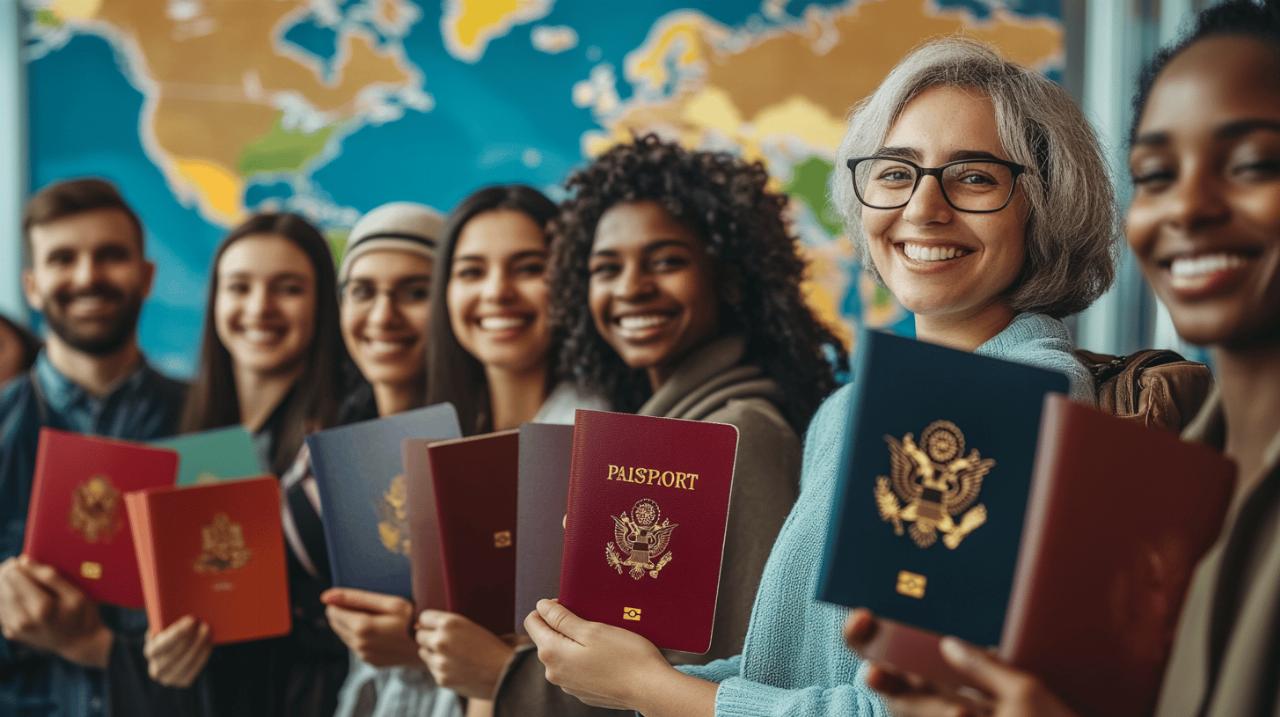Exploring the multifaceted world of global advertising reveals innovative strategies that transcend borders and connect with international audiences. One such approach gaining prominence is the use of national identity and global citizenship themes in marketing campaigns across different markets and cultural contexts.
The Concept and Evolution of Passport Marketing
The fusion of global identity concepts with advertising strategies has created distinctive approaches to reaching consumers across geographical boundaries. This specialized marketing technique leverages cultural associations and international movement to create compelling brand narratives that resonate worldwide.
Defining passport marketing as a global advertising strategy
Passport Marketing represents a sophisticated approach where brands utilize the concept of global mobility and citizenship to position their products or services in international markets. This strategy often incorporates elements of cultural exchange and cross-border experiences to build consumer trust. Many organizations now employ Passport Marketing to enhance their market research capabilities, with data showing that award-winning market research databases like Passport are trusted by 5,700+ organizations and utilized by 65,000 active users globally.
Historical development and modern applications
The evolution of this marketing approach parallels the rise of globalization and digital transformation. From early travel-themed advertising to today's sophisticated digital initiatives, the landscape has dramatically changed. Modern applications now integrate Digital Product Passports (DPPs) which track product lifecycles and enhance transparency in industries ranging from fashion to cosmetics. These digital tools are becoming increasingly important as EU regulations will require DPPs for fashion items by 2027, detailing everything from materials to end-of-life instructions. Brand pioneers like Bergans of Norway and Nobody's Child have already implemented Passport Marketing techniques to highlight their commitment to circular economy principles and sustainability.
Strategic implementation in global campaigns
Passport marketing has emerged as a powerful approach in global advertising, representing the concept of borderless branding and worldwide consumer connection. As brands increasingly seek to establish international presence, passport-themed promotions offer a unique way to resonate with diverse audiences across multiple markets. This strategy aligns with the growing interest in Digital Product Passports (DPPs) and global citizenship concepts, creating transparent connections between brands and consumers worldwide.
Leveraging cultural diversity through passport-themed promotions
Passport marketing enables brands to create campaigns that transcend geographical limitations while honoring cultural diversity. Market research spanning 210 countries and jurisdictions reveals that effective passport marketing strategies acknowledge regional differences while emphasizing universal values. The award-winning Passport market research database, trusted by 5,700+ organizations with 65,000 active users globally, provides invaluable insights for crafting culturally sensitive campaigns. These insights are generated by a team of 1000+ research professionals, data scientists, and technology specialists who analyze consumer trends across diverse markets.
Brands implementing passport marketing must prioritize sustainability and transparency, especially as EU regulations mandate Digital Product Passports for fashion items by 2027. These digital passports will detail materials, manufacturing processes, supply chain information, environmental impact, and end-of-life instructions. While a survey showed British consumers are twice as likely to care about clothing durability than environmental impact, passport marketing can bridge this gap by emphasizing both quality and sustainability. Companies like Nobody's Child have successfully incentivized DPP engagement through gifts and shopping sprees, demonstrating how passport marketing can drive both brand loyalty and environmental awareness.
Case studies of successful global citizenship advertising
Several brands have pioneered successful passport marketing campaigns that highlight global citizenship values. Bergans of Norway trialed Digital Product Passports focusing on circular services like repair and rental, appealing particularly to younger consumers (Gen Z) interested in end-of-life information and circular fashion. This approach simultaneously addressed sustainability goals while positioning the brand as globally conscious.
Luxury shoe manufacturer Loake rolled out DPPs to showcase their craftsmanship globally, using passport marketing to verify product authenticity amid rising concerns about counterfeit products. Similarly, furniture brands DFS and Ligne Roset are trialing DPPs to establish global trust in their products. These cases demonstrate how passport marketing strategies can vary by industry while maintaining core principles of transparency and global brand consistency. The trend extends to cosmetics, which are expected to comply with DPPs by 2027-2030, despite research showing only 15% of UK beauty consumers confidently understand what constitutes a sustainable beauty product. Passport marketing bridges knowledge gaps by making complex sustainability information accessible and engaging for global audiences while building brand trust across international markets.


